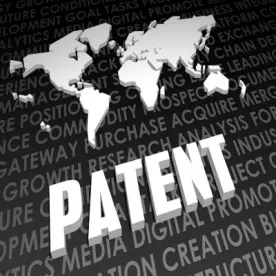The United States Supreme Court ruled on Friday that a patent owner can, at least in some situations, recover lost profits for the unauthorized use of its patented technology abroad. The 7-2 decision in WesternGeco LLC v. ION Geophysical Corp. overturned the Federal Circuit’s opinion, which relied on the presumption against extraterritorial application of U.S. law to vacate a jury’s award of $93.4 million in profits that the patent owner would have earned on overseas contracts.
In the opinion, the Supreme Court soundly rejected the Federal Circuit’s view that profits lost outside the United States are categorically unavailable as a matter of United States patent law. But the Court declined to go as far as the patent owner requested and find that the “presumption against extraterritoriality should never apply to statutes, like 35 USC § 284 [the patent damages statute], that merely provide a general damages remedy for conduct Congress has declared unlawful.” (For more details on the Federal Circuit decision and briefing, see our prior posts here and here.) The Court instead focused on the narrower question of “whether the case involves a domestic application of the statute.”
According to the Court, even if “other conduct occurred abroad,” a case involves a “permissible domestic application” if “the conduct relevant to the statute’s focus occurred in the United States.” Based upon the statutory focus, the Court determined that “the conduct relevant to the statutory focus in this case is domestic” and so damages based on foreign lost profits were not prohibited.
In reaching this conclusion, the Court reconciled the parties’ views as to whether the case presented a question of infringement under 35 U.S.C. § 271 or one of damages under 35 U.S.C. § 284. The Court noted that where a statutory provision at issue “works in tandem with other provisions, it must be assessed in concert with those other provisions” when determining the “focus” of the statute. Turning first to 35 USC § 284, the Court found that the focus of this statute, which provides a general damages remedy for various types of patent infringement, is “the infringement”—not damages. And because 35 USC § 271 identifies various ways in which a United States patent can be infringed, determining the focus of Section 284 in a given case requires the Court to look at the type of infringement that occurred under Section 271.
Here, 35 USC § 271(f)(2) was the basis of the patent owner’s infringement claim and the lost profits damages that it received. Section 271(f)(2) provides that a defendant is “liable as an infringer” if it:
supplies in or from the United States all or a substantial portion of the components of a patented invention . . . as to actively induce the combination of such components outside of the United States in a manner that would infringe the patent if such combination occurred within the United States.
Given that the conduct regulated by Section 271(f)(2) is domestic—i.e., “suppl[ying] in or from the United States”—the Court found that the focus of Section 284 was domestic infringement through the act of exporting components from the United States. The Court concluded, on this basis, that damages based upon contracts to be performed outside of U.S. territory were permitted.
WesternGeco thus opens the door to patent owners recovering lost profits they would have earned overseas—at least in some situations. The Court was careful to limit the scope of its decision to infringement under Section 271(f)(2) and expressly refused to declare that Section 284 is not subject to the presumption against extraterritorial application of United States law. Accordingly, the Federal Circuit’s decision in Power Integrations, Inc. v. Fairchild Semiconductor International, Inc. continues to bar the recovery of damages from foreign sales for infringement under 35 USC § 271(a).
In light of this decision, litigators should be sure to assert infringement under Section 271(f) if there is any conceivable “combination” of exported parts so as to preserve the opportunity to obtain damages from infringing foreign sales and use. Patent prosecutors may also wish to include claims for products that are likely to be assembled outside of the U.S., and that include inventive components manufactured within the U.S.





 />i
/>i

